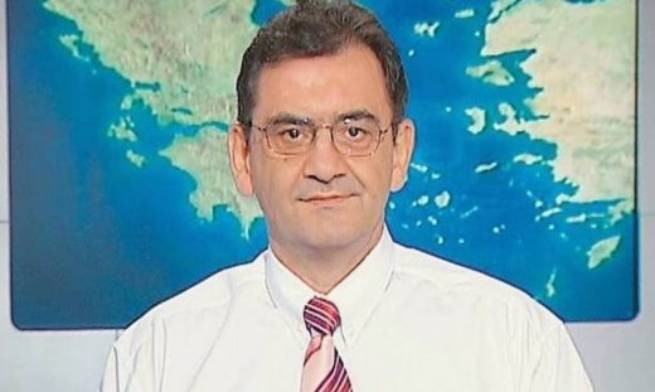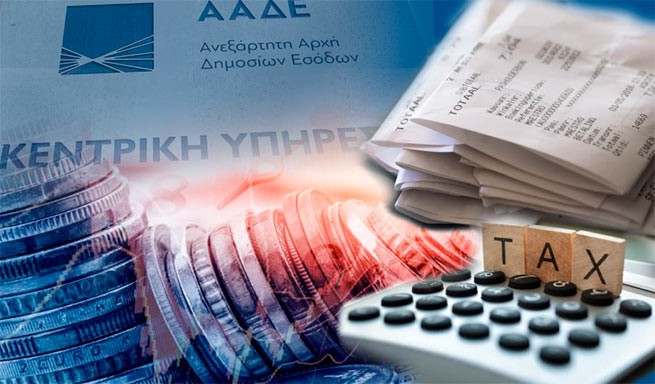The Greek Ministry of Economy is keeping IOBE’s proposals for changes to the taxation of freelancers a closely guarded secret in order to distribute taxes more fairly and, more importantly, to capture their real profits arising from their income and expenses, which in most cases, according to the data tax returns are often fictitious.
The Ministry of Economy is reviewing the proposals one by one with the aim that the final decisions taken are both reformative and substantive, since the implementation of the tax restructuring plan for self-employed freelancers promoted by the Ministry of Finance is an obligation of Greece in the context of the implementation of the European Semester, i.e. annual process of coordination of economic, fiscal, social and employment policies in the European Union.
At the same time, the agenda of the government, about which the Prime Minister Kyriakos Mitsotakis will speak at length from the rostrum of the 87th Thessaloniki International Fair, the fight against tax evasion occupies an important place. Moreover, this time the goal is not to leave no verbal statements, but to make it clear to all stakeholders (businesses, professionals and consumers) that the measures to be implemented in this area will not leave room for misinterpretation. From now on, tax theft will be detected by modern electronic means and procedures that will be difficult to evade, and those who are detected, in addition to the fines they will have to pay, also face harsh prison sentences.
Draft changes in the taxation of professionals
Tax filing data included in a recently published report by the Independent State Tax Office shows a huge gap between turnover and net income reported to the tax authorities by self-employed individuals, as well as the fact that around 7 out of 10 declare an annual income of up to 10,000 euros. This fact forced the employees of the economic department of the government to look for ways to determine and tax real income. Among the scenarios under consideration is a change in tax rates for this category of taxpayers, especially for those who declare very low incomes, as well as the introduction of a new way of determining taxable income using various criteria.
Income and tax rate
As a reminder, at present, freelancers and farmers’ income-profit up to 10,000 euros is taxed at a rate of 9%, while for incomes over 10,000 euros, tax rates vary from 22% to 44%. There are considerations – albeit promoted – that the introductory low rate should be increased, but only for those whose annual declared taxable income (profit) does not exceed, for example, 5,000 or 10,000 euros. In essence, this means that the 9% entry rate for the first income group for those who declare a total income of over 5,000 or 10,000 euros should remain. However, the only certainty is that if such a decision is made, then almost all the self-employed, who declare clearly very low incomes, will be against it, as they will be asked to pay more taxes.
Expenses
However, whether or not tax rates are eventually changed, the only thing that can be said with certainty is that changes are being considered in relation to expenses deducted from professional gross income. There appears to be a preference for a proposal to phase in the proposal that the IRS would only recognize expenses that go through MyDATA e-books. This will limit the ability to deduct unreasonable expenses from gross income. Consideration is also being given to lowering the threshold above which the payment electronic means, not cash, is mandatory. Recall that this threshold is currently set at 500 Euro. Reducing this threshold up to 300 euros help limit the issuance of invoices that hide transactions that may or may not be true.
Measures to combat tax evasion
From the rostrum of the 87th International Fair in Thessaloniki, the Prime Minister is expected to place particular emphasis on the issue of combating tax evasion, especially in relation to VAT. Among the measures that are expected to be implemented in the near future is the expansion of electronic transactions with the mandatory distribution of POS to more types of economic activity and professions. Currently, it is not mandatory to have a POS in dozens of commercial premises such as gyms, training centers, parking lots, cinemas.
Also, the interconnection of cash registers with POS will play an important role in reducing tax evasion. Completing the interconnection of 400,000 cash registers and 140,000 special tax mechanisms with POS enterprises is a central task of the financial staff and the Independent State Revenue Service.
In addition, incentives for electronic transactions are currently being reviewed from the ground up, and a new incentive system for receipts is expected to be created that will be more attractive to taxpayers so that they do not prefer to pay in cash.
“Black” money
In the context detection of “black” money in the pockets of professionals The Independent State Revenue Authority promotes project within which careful cross-checking of the categories of professionals that occupy high positions in the lists of tax evaders. We are talking about professions that are mainly related to construction and annually declare defiantly low incomes. However, family incomes not exceeding 10,000 euros per year, and in total there are more than 3.8 million taxpayers, will also become an object of attention for AADE. The main lever of tax control are movements in bank accounts.
However, just yesterday, the Minister of National Economy and Finance Kostis Hatzidakis, during his speech in Parliament on the draft law on digital platforms, specifically noted: “MWe will fight tax evasion with concrete initiatives, measures and digital tools, which you will hear about on Saturday in the speech of the Prime Minister at the Thessaloniki International Trade Fair, and not wishful thinking. This is also my personal task, and it will be the top priority of the Ministry of Economy and Finance during this four-year period. I want tax evaders to hear first of all that we mean absolutely everything we say: digital tools are not right, left or center, they will allow us to take very important steps, and in a few months rather than in five terms, we will have very concrete evidence. In collaboration with AADE already started this summer, with specific controls and with more controls than in previous years”.
Three goals
Speaking about the bill, Hatzidakis said it is the first step in the fight against tax evasion as it aims to achieve three goals:
- Exchange of information between Member States on VAT and income tax. “I would like to remind you that thanks to the efforts made since 2019, we have reduced the so-called VAT gap by about half. This is not a small amount, but efforts must continue,” he said.
- Collection of information about transactions made through digital platforms. “The government, regardless of the European directive, has gone in this direction in previous years, and that is why we are already able to collect about 600 million euros per year from these platforms, while previously we collected 60. This fact shows the extent of tax evasion”, the minister said, pointing to the penalties envisaged by the bill for those who do not cooperate: fines of up to 500,000 euros and termination of the presence on the platform market, closing accounts, withholding payments and fines for users. He stressed that the government will come up with an additional initiative to tax income from this market, seeking, on the one hand, to avoid unfair competition, and on the other hand, not to undermine the way the short-term rental market, which covers the important tourist needs of the country, works by excessive measures.
- Accelerate the process of merging POS with cash registers, which Mr. Hatzidakis says is the “flagship” of tax avoidance regulation and the government’s own commitment under the Recovery Fund. “I say this to all concerned parties. To let them know that we don’t have room for flexibility. We will do our best to complete the connection in the first months of 2024 because, among other things, the country will lose money if they are not connected.“, he said. He also highlighted the penalties provided for violators: fines of up to 200,000 euros for POS providers and up to 10,000 euros for businesses with improper POS.







More Stories
Fruits and vegetables: imports up 50.2% in April
Greek products on their way to France
Reduced fees for POS transactions, limited bank fees